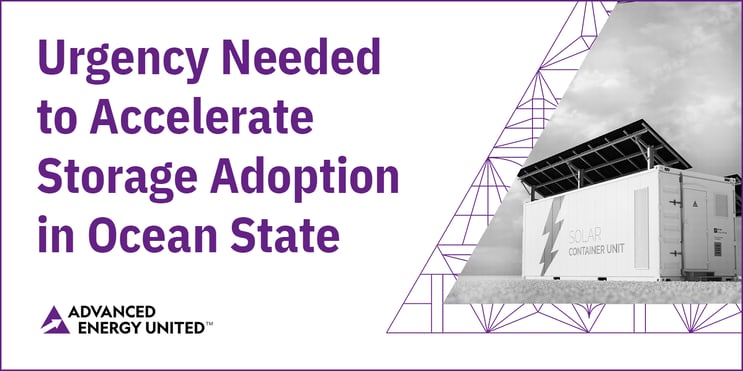
Kat Burnham
Recent Posts
Energy Affordability Top Priority in 2025 Connecticut Legislative Session
Topics: State Policy, Connecticut
A Beacon from Beacon Hill: A Case Study from Massachusetts on Leadership in Clean Energy

As we near the end of 2024, I’m pleased to share some good tidings and a bit of hope. While uncertainty hangs heavy on the horizon, Massachusetts offers a bright example of how states can shine when they choose to step up.
Governor Maura Healey recently signed a landmark clean energy package that will accelerate clean energy deployment in Massachusetts, and, in turn, will increase local jobs and lower energy costs. The act includes critical reforms to streamline siting and permitting processes, as well as provisions to expand grid-enhancing technologies, energy storage, and other advanced energy technologies.
Topics: State Policy, Energy Efficiency, Economic Impact, Massachusetts, Clean Electricity
Rhode Island Report Recognizes Benefits of Energy Storage, but Falls Short on Action
 Batteries and other energy storage resources are increasingly touted as a critical piece of the clean energy transition – but, as a relatively new and dynamic resource, evaluating and integrating storage projects requires a fresh approach. On October 18, the Rhode Island Public Utilities Commission (PUC) released a much-anticipated final report regarding the value of and need for energy storage resources in the state. Although there are insights from both the process and final document that are instructive to policymakers in Rhode Island and beyond, the report lacks the necessary urgency and ambition to accelerate storage adoption and create a vibrant energy storage market in the Ocean State.
Batteries and other energy storage resources are increasingly touted as a critical piece of the clean energy transition – but, as a relatively new and dynamic resource, evaluating and integrating storage projects requires a fresh approach. On October 18, the Rhode Island Public Utilities Commission (PUC) released a much-anticipated final report regarding the value of and need for energy storage resources in the state. Although there are insights from both the process and final document that are instructive to policymakers in Rhode Island and beyond, the report lacks the necessary urgency and ambition to accelerate storage adoption and create a vibrant energy storage market in the Ocean State.
Topics: Rhode Island
With Fossil Fuel Plants Overvalued, It’s Time to Get Capacity Right

Grid operators today are managing a changing portfolio mix while facing new system reliability challenges, such as extreme weather events occurring with greater frequency. As the clean energy transition accelerates, it’s vital that grid operators accurately understand how much they can count on different generating resources. They do so by evaluating the resource adequacy, or capacity value, of the resources available to determine how to meet total demand. But what happens when those methods of valuing capacity overlook certain outage risks? Some generating resources gain more reliability credit than they deserve. That is indeed happening with conventional power plants (coal, oil, and natural gas), which may be overvalued by as much as 20% under traditional methods. As new analysis commissioned by AEE shows, it’s time to get capacity right.
Topics: Regulatory, Wholesale Markets